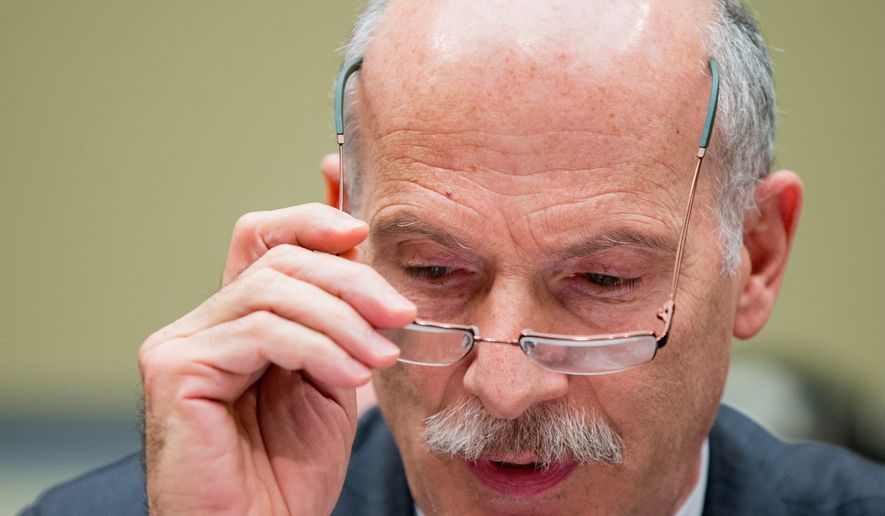The D.C. Council on Tuesday considered legislation that would break up the Department of Consumer and Regulatory Affairs (DCRA) into two agencies and moved forward with procedures to expel council member Jack Evans.
Anyone who owns property or does business in the District must deal with the DCRA, one of the city’s most troubled agencies. Most recently, it has come under scrutiny for failing to inspect and supervise a commercial property being used as a residence, where two people died in a fire this summer.
“My goal today is to explain why the executive opposes this bill and why we believe if enacted, the provisions of this bill would hinder the very real progress the agency is starting to achieve, while spending unnecessary additional taxpayer dollars,” DCRA Director Ernest Chrappah testified Tuesday.
Council Chairman Phil Mendelson led a hearing on legislation introduced two years ago that would establish the Department of Buildings and remove from the DCRA the responsibilities of enforcement of construction compliance, rental housing safety, and residential property maintenance. It would redesignate the DCRA as the Department of Licensing and Consumer Protection.
Mr. Mendelson expressed doubts about any progress the agency has made, in light of a recent report that noted several areas in which the agency can improve and hours of testimony from witnesses who offered examples of how DCRA fails to follow standard operating procedures, drops the ball on complaints and lacks a safety-focused culture.
The Office of the Inspector General contracted Federal Management Systems to evaluate DCRA’s internal controls — the process management uses to help the agency achieve its objectives.
DCRA already has complied with most of the report’s 17 recommendations to improve internal controls. However, the agency has yet to respond to the recommendation that it create a strategic plan with details about its mission and objectives, including long-term goals that extend beyond the one-year budget, and develop a policies and procedures manual.
Mr. Chrappah said that if the legislation, if enacted, would “demoralize” his staffers, who are working hard to achieve progress.
He added that two separate agencies would be inefficient because it would require licensing inspectors and housing code investigators, who often collaborate, to communicate across two agencies instead.
Other witnesses also opposed the legislation, arguing that Mr. Chrappah, who came to DCRA in February, needs more time to implement changes and that creating a new agency won’t serve as a solution.
Beth Harrison, an attorney at the Legal Aid Society, argued that a smaller agency would result in a workforce more focused on protecting tenants. She also said she is concerned about some of Mr. Chrappah’s initiatives.
Specifically, his new citizen inspector program “will only weaken an already troubled enforcement environment by leading to lower-quality inspections, less consistency and less follow through on enforcement,” Ms. Harrison said.
Many of the witnesses recalled the Aug. 18 row house fire that killed Yafet Solomon, 9, and Fitsum Kebede, 40. The fire could have prevented if DCRA had followed through on complaints of building violations.
Also on Tuesday, the ad hoc committee reviewing the ethics investigation into Mr. Evans was formally dissolved after the 12 members voted unanimously to adopt a report that recommended the expulsion of the Ward 2 Democrat.
On Jan. 7, Mr. Mendelson plans to hold a hearing on expelling Mr. Evans — per the council’s code of conduct. A final vote to expel him is tentatively scheduled for Jan. 21.
• Sophie Kaplan can be reached at skaplan@washingtontimes.com.




Please read our comment policy before commenting.